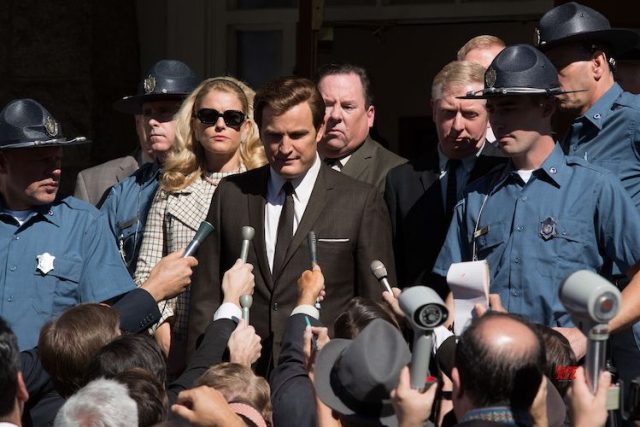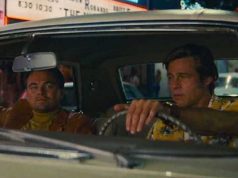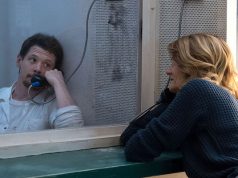
Based on the infamous 1969 incident in which a young woman drowned after a probably-drunk Sen. Ted Kennedy drove his car off a bridge into a pond, “Chappaquiddick” is unusual for a docudrama in that its point of view is different from its main character’s. Our protagonist, 37-year-old Kennedy (played by Jason Clarke in big white teeth), has this reaction to the event: “I’m not gonna be president.” The movie, directed by John Curran (“We Don’t Live Here Anymore,” “The Painted Veil”) and written by first-timers Taylor Allen and Andrew Logan, has this reaction: “Look at this entitled rich a-hole.”
Curran doesn’t hit us over the head with it, though, and the film is not the anti-Kennedy manifesto that some were hoping for. It has the look and feel of a respectful biopic, starting with Kennedy being interviewed about JFK’s legacy on the eve of the Apollo 11 moon mission. (The Chappaquiddick incident occurred while Neil Armstrong and friends were en route.) It’s after a party for former staffers of the late Bobby Kennedy’s presidential campaign that Ted gives one of those staffers, 28-year-old Mary Jo Kopechne (Kate Mara), a ride back to her hotel but goes over the bridge instead.
The rest of the film, save for a few snippets of flashbacks, is about the aftermath. Ted initially seeks to evade responsibility and shift the blame, telephoning his ancient father (Bruce Dern) for advice and hearing the old man croak one word: “alibi.” He has a team of fixers who alternate between berating him for being so careless (he was even driving with an expired license) and convincing him they can beat this thing and he can still run for president. (Note for younger readers: There was a time having done immoral things in one’s private life meant you had no hope of winning an election.) Ted’s cousin, lawyer Joe Gargan (Ed Helms), is presented as a man of conscience who persuades Ted to do the right thing, but Ted’s version of “the right thing” is to issue a written statement that still doesn’t tell the whole truth, and then to show up at Mary Jo’s funeral wearing an unnecessary neck brace.
It’s fascinating, tragic, and sometimes darkly funny to see Ted’s oblivious, self-serving behavior. Without letting him off the hook, the film grants us a few opportunities to sympathize with him. He lives in the shadow of his three dead brothers (the oldest, Joe Jr., died in WWII) and feels his only value to the family is that he’s still alive. He doesn’t know who he is, and now his foolish behavior has ruined his chances of achieving his only goal. Jason Clarke (who, fun fact, was born the day before all of this happened) finds the humanity in Ted Kennedy, a privileged but damaged man who also experienced a great deal of tragedy that was not of his own making. Ed Helms is good, too, as his conscience-stricken cousin.
But the film suffers from too much explanatory dialogue — “So-and-so? Why, he’s the paper’s chief political correspondent and executive editor!” “This person standing right here is the U.S. attorney of Massachusetts!” — and from its bifurcated allegiances. The film’s opinion of Kennedy being different from Kennedy’s opinion of himself adds nuance but reduces clarity. What is the point? Why does this movie exist? It covers events that have faded from the public memory, concerning people who are no longer alive, and has little to say about how those events might have parallels today. But if it’s just meant to be a competent bit of historical drama, it does that well enough.
B- (1 hr., 46 min.; )





